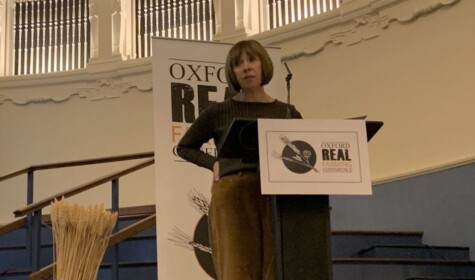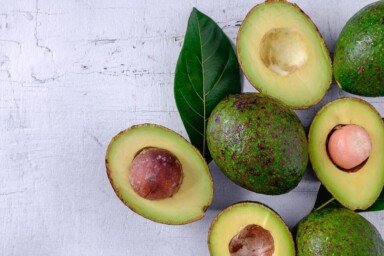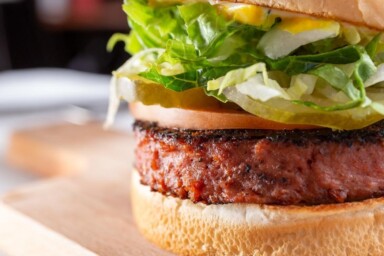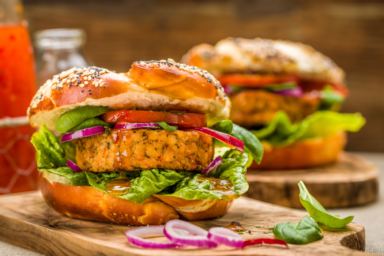In my view, for any diet to be credible it has to fulfill 2 key requirements.
Firstly, it must be a diet that keeps people healthy. That should be obvious.
Secondly, unless our diet is to override planetary limits and therefore trash the environment, what we put on our plates must reflect the productive capacity of our land.
Now, I have interrogated the fashionable plant-based concept using these criteria, and concluded that I certainly won’t be adopting it, or recommending that anyone else does.
Here’s why.
The traditional omnivore diet that most people of my age were brought up on can definitely supply all the macro- and micronutrients our bodies need in a bioavailable form, by that I mean that we can easily absorb them.
Meat for instance, provides us with high quality protein- that is to say this protein has all the essential amino acids, and all the necessary vitamins, minerals, and fats, in an optimum ratio.
Now, compare that with a vegan diet. Unless you take a supplement, or eat an unwise amount of sugar and salt-laden vegan processed foods that have been fortified with synthetic vitamins, you won’t get enough vitamin B12. That’s a fact. This is because, and let me quote Harvard Medical School here: There are no known plant foods that are natural sources of B12.” And it continues: “Research shows that vegans who don’t take a B12 supplement often have inadequate B12 levels.”
This essential vitamin is of great importance to our health, and inadequate intake can potentially lead to anaemia, nerve damage, and other serious consequences.
For me, any diet that automatically leaves you deficient in essential micronutrients, a diet, which, by definition, isn’t nutritionally complete enough to sustain healthy human life, is a non-starter.
But what about a plant-based diet though? It doesn’t sound so extreme as a vegan diet.
Well, let’s look at the Eat Lancet plant-based diet that is currently being heavily promoted. It drastically restricts animal foods.
It allows us only an egg and a half each week (not day), and not more than a daily mouthful of red meat.
Dr Zoe Harcombe has analysed the Eat Lancet diet using the US government reference values for micronutrients. She concludes that if we followed it, we would become deficient not only in B12, but also in D3, K2, potassium, sodium, calcium, heme iron, and essential fatty acids.
One of the big problems about trying to get all your nutritional requirements from plant foods is that unlike animal foods, the micronutrients they contain aren’t so bioavailable.
For example, calcium absorption from spinach is only 5% compared to 27% for milk.
Bear in mind that proponents of Eat-Lancet are pushing it as “a universal healthy reference diet” that is applicable to everyone everywhere. Yet vast swathes of the world’s population suffer from under-nutrition.
When I met women tea pickers in Darjeeling, they told me that they dreamed of being able to afford a house cow because its milk, and eventually its meat, would help them feed their kids a nutritious diet. Its manure would help fertilise their crops. Its hide could be sold for leather.
These women worried about their children going hungry.
When ideologues living in affluent countries, countries where obesity and Type 2 diabetes are rampant, and where neuroticism around food is rampant, pressurise poor countries to eschew animal foods and go plant-based, they are displaying crass insensitivity, and a colonial, White Saviour mindset.
It’s stark staring obvious to me that it is the ultra-processed food we’ve started eating in the last 60 years that is driving diet-related ill health and obesity, not traditional whole foods, like meat, in their natural forms.
Yet one of the ironies of adopting a plant-based diet is that most people will end up eating more of the former, and less of the latter.
The other day, for instance, I heard a plant-based cook saying that she now used ‘high quality sunflower spread’ instead of butter in a traditional cake recipe.
But such a spread is just trendily marketed margarine, one of the most heavily processed foods of all. Give me our native butter any day.
Obviously if you choose plant-based you consequently have to turn your back on most of the foods that the UK is best at producing, because they are animal foods: meat, dairy, eggs, and fish from our seas. The UK is not Sicily.
Our current ‘food security’, our self-sufficiency in food, is only 60% at present. Our livestock farmers are mightily downhearted because of all the attacks that are being made on them. A shift to plant based would make Britain’s food security plummet further. All it would take would be a stress to the global food system, such as war, for our shelves to empty within days.
To get a taste of how local resilient food cultures can be undermined by plant-based dogma, we can go to the Nunavik region in Alaska. There the local health authority has been recommending a plant-based diet in the form of an igloo-shaped pictogram. At its base, in place of the fish fat and flesh that were life-sustaining, locally available staples, the pictogram shows images of mangoes and pineapple. I’m told that these sugary fruits have to be flown up from Mexico. By the way, rates of obesity and T2 diabetes are soaring up there in Nunavik. .
The same craziness is affecting us here. We’re encouraged to eat jackfruit and banana blossom, both unconvincing vegan substitutes for meat, either imported from Thailand in tins, or air-freighted here, fresh.
We’ve lost the plot when arcane imports and genetically modified fake meat burgers dreamed up by venture capitalists in Silicon Valley, are portrayed as more acceptable than a lamb chop from a British hillside.
But as part of its “Great Food Transformation”, Eat-Lancet, and people like George Monbiot, actively want to stamp out the existing multiplicity of distinctive and diverse food cultures that are predicated on local history, seasons, traditions, cultivars, breeds, and artisan methods, and they want to replace them with a monocultural, globalised diet, one that’s centred on factory and laboratory food.
They would replace this culinary richness and natural biodiversity with a top-down, ‘we know what’s best for you’ universal diet.
For three decades I have campaigned against factory farmed foods and written books asking people to boycott them. My view has always been that they have no place in any aware, ethical diet. But now I’m running out of patience with plant-based proponents, who use the worst examples of factory farming as a broad-brush with which to smear all livestock farming.
Okay, I expect this from extremist vegan organisations. They don’t seem to me to have any hands-on experience or in-depth knowledge of food production, be it animal or otherwise. These tunnel-visioned evangelists have swallowed hook, line, and sinker the generic, unqualified lies and distortions they’ve picked up online.
But from George, if I’m honest, I find such crude arguments intellectually dishonest. He should know better.
And then I hear him promoting as dietary saviours the most ultra processed, fake, food-emulating products conjured up out of thin air. He tells us that technology will solve everything, that the future is already decided.
Certainty about the future makes for more dramatic headlines than uncertainty and nuance.
But the truth behind this rhetoric of inevitability is that these technologies have huge problems.
This doctrine of hi-tech inevitability is propaganda. It demands not our participation, but our acquiescence.
We should see it for what it is:
Those who claim to know the future are trying to own it.







